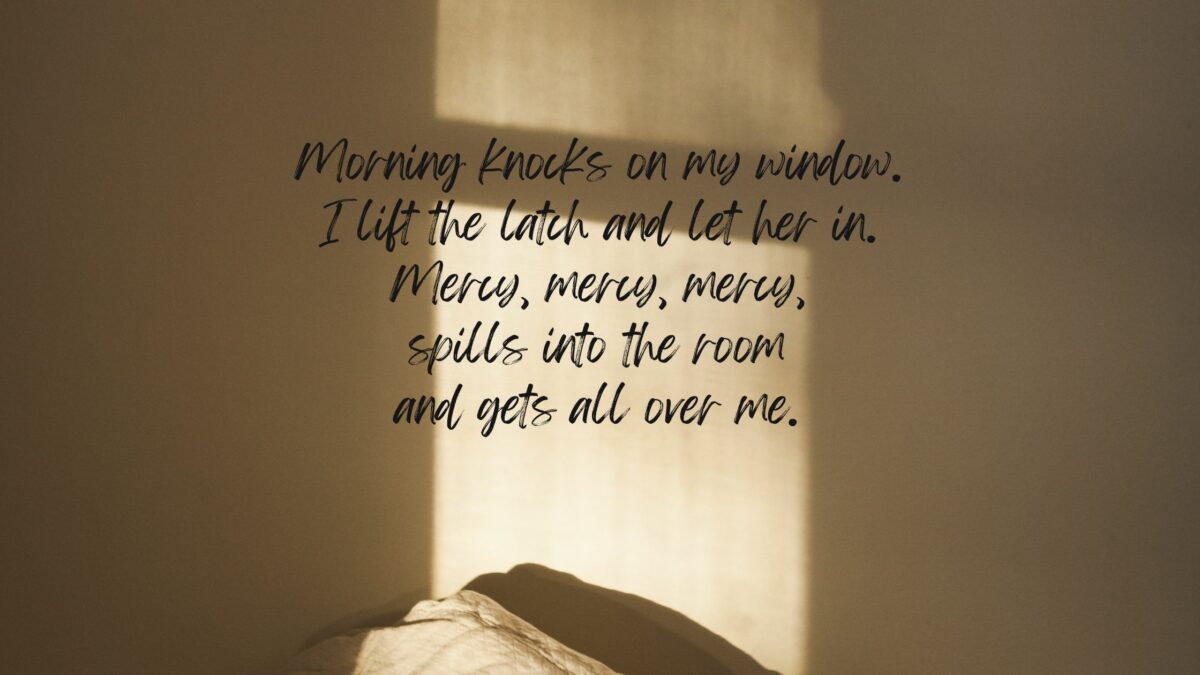If you follow me on Instagram, you’ll know I rise early. In the quiet moments of dawn, when the world seems to hold its breath, I find the gentle, yet profound, presence of mercy. There is no searching, no pleading. It comes knocking, seeking me out, wanting me to leave yesterday and start over.
As I navigate disappointments, errors, and unmet expectations, the concept of mercy becomes not only a balm but a transformative force.
I wrote a poem about mercy. Although it is quite simple, it is exactly how I experience it. The poem is untitled in my second collection ‘A Strong and Fragile Thing’, but for the sake of this blog post, let’s call it ‘The Dawn of Mercy.’
The Dawn of Mercy
'Morning knocks on my window. I lift the latch And let her in. Mercy, Mercy, Mercy spills into the room And gets all over me.'
In these lines, I attempt to show how mercy is a daily renewal. The act of opening the window is symbolic of my need and willingness to receive, to be enveloped and changed by this gentle force. I have found that mercy, in its quiet power, does not merely visit; it transforms, covering me, offering a fresh start, a new perspective.
The Echoes of Forgiveness
In another piece, poet Maya Angelou offers a reflection on the nature of mercy through the prism of forgiveness:
"The sun has come. The mists have gone. We see in the distance... our long way home. I was always yours to have. You were always mine. We have loved each other in and out of time."
Angelou’s words speak to the enduring quality of mercy that exists within the fabric of love and forgiveness. The imagery of the clearing mists and the dawning sun parallels the process of moving through pain and misunderstanding towards a place of clarity and reconciliation. It is a reminder that mercy is not just about the forgiveness we extend to others but also about the grace we allow ourselves, acknowledging our shared humanity, our capacity for error, and our potential for redemption.
The River of Compassion
The poet Rumi offers another facet of mercy in his work:
"The wound is the place where the Light enters you. Don't turn away. Keep your gaze on the bandaged place. That's where the light enters you."
I love this poem. Rumi’s perspective invites us to view our wounds, our failures, and our disappointments not as mere sources of pain but as openings for growth, understanding, and ultimately, mercy. It is in our most vulnerable moments that the possibility for true compassion—towards ourselves and others—emerges. This poem encourages me to embrace my imperfections, to see them as the very sites where healing and mercy can begin their work.
Starting Afresh: The Mercy of New Beginnings
The common thread that weaves through all these poems is the transformative power of mercy. It is a force that does not ignore our flaws but lovingly acknowledges them, offering a pathway to healing and renewal. Mercy invites us to turn the page, to see every sunrise as an opportunity to start afresh, unburdened by the past.
In my life, this means forgiving those who have wronged me, or perhaps, more challengingly, forgiving myself. It involves a commitment to seeing the world through a lens of compassion, recognizing that everyone has their struggles, their ‘bandaged places’, and that we are all, in one way or another, in need of mercy.
